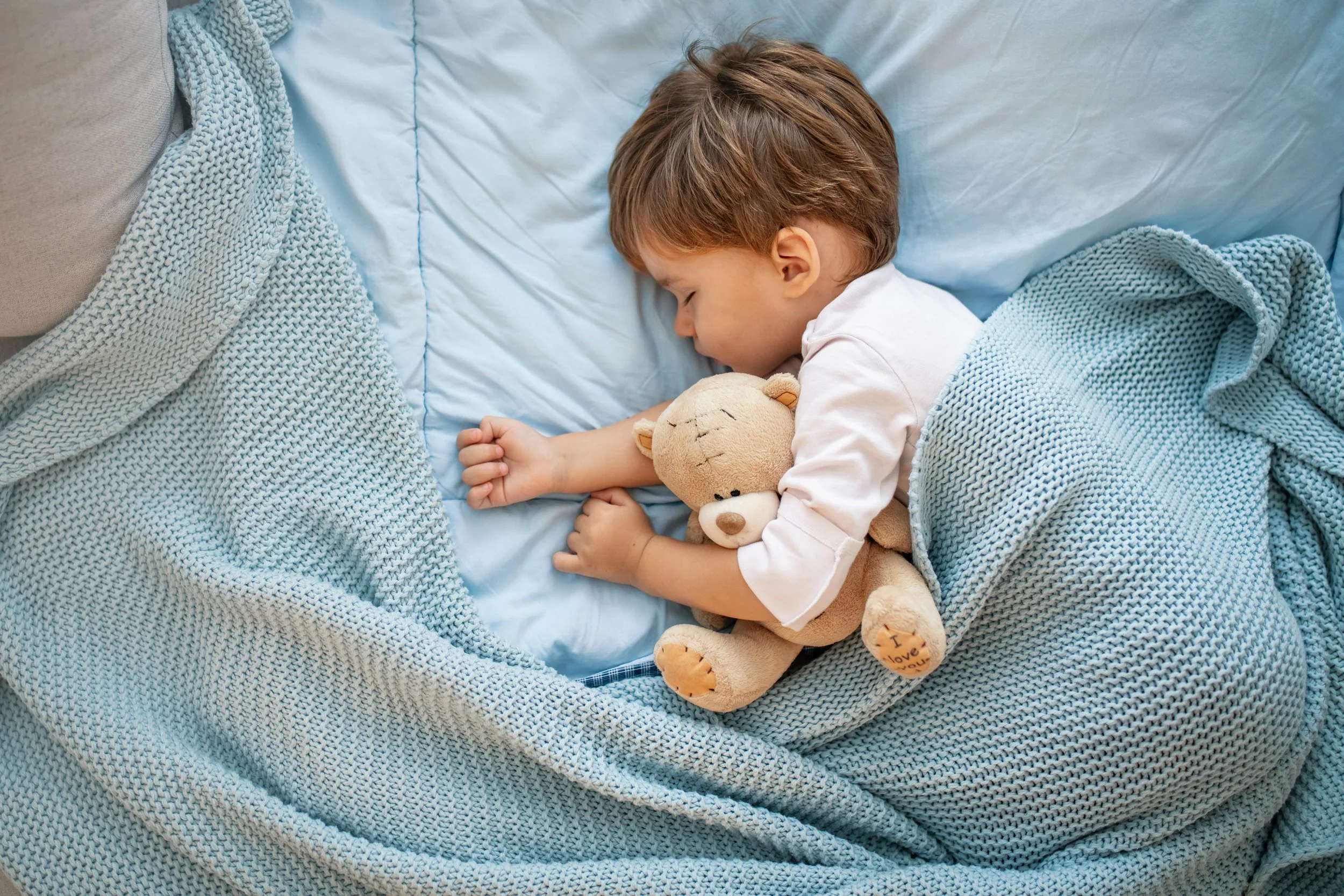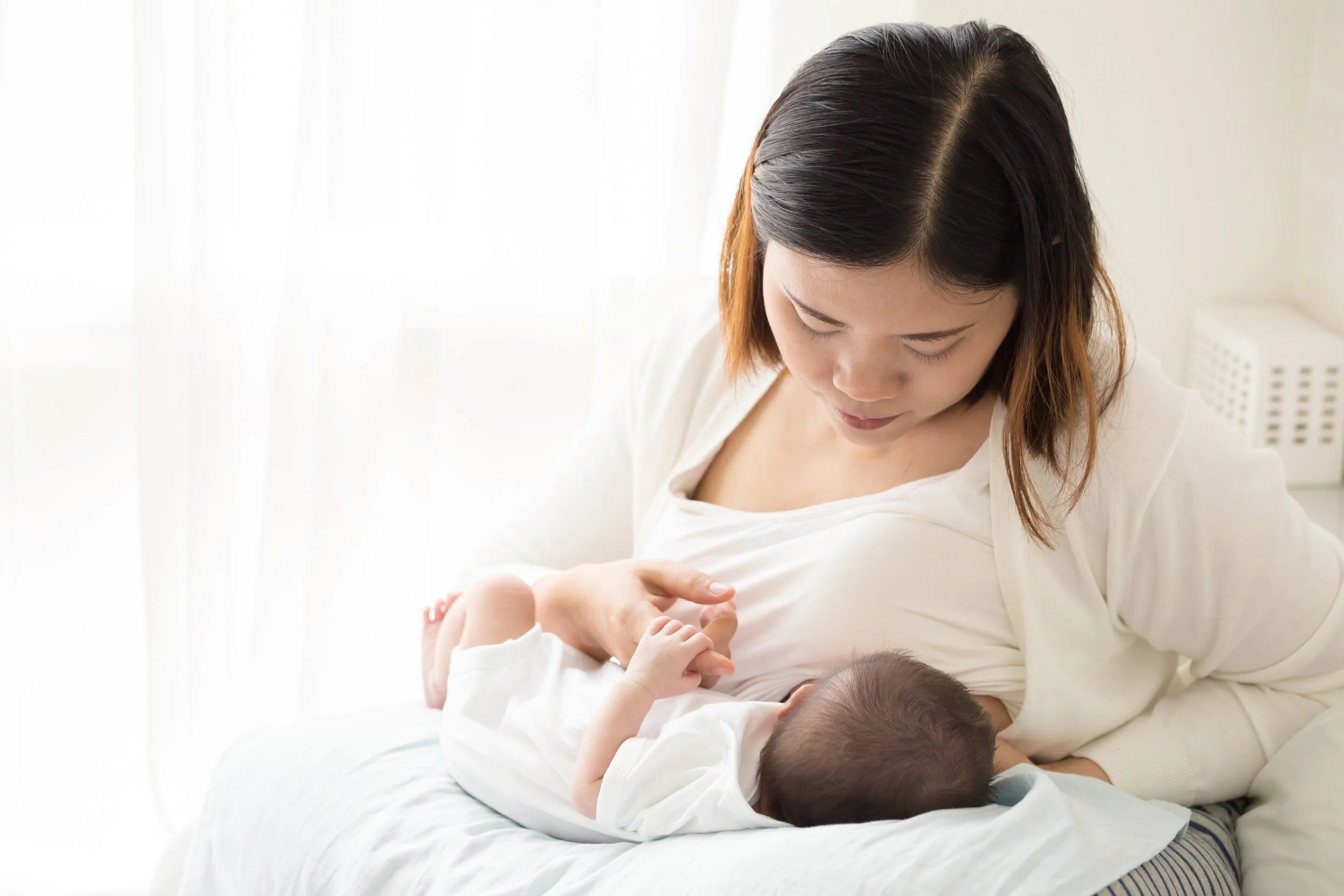One of the most common questions I get from new parents is -- will a pacifier improve my baby's sleep? I know that I asked myself this same question when I was a new mom and to my dismay, neither one of my babies would take a pacifier no matter how hard I tried… And let me tell you, I tried.
I tried every brand, every shape, every type, every color and honestly, if someone had told me if I stood on my head and gave my baby a pacifier that they would be more likely to take it, I would've tried that too. But no such luck -- it just didn’t work for me.
Little did I know, the pacifier likely wasn't the answer to our sleep prayers, and actually it would have likely caused even more difficulties overnight.
A Pacifier As A Sleep Prop
Sure, a pacifier does help some babies to fall asleep, and there are some unicorn babies out there that will sleep through the night with or without a pacifier, but what I’ve learned in my experience is that they're just good sleepers.
If your child is like mine were and not a good sleeper, a pacifier will likely cause a bigger issue. Likewise, if you're currently using a pacifier with your baby and they're waking up excessively overnight, the pacifier is likely the culprit.
Let me explain why. A pacifier is considered a sleep prop. A sleep prop is anything external that a child needs to fall asleep. Sleep props can include breast or bottle-feeding to sleep, rocking or swaying in their parent’s arms, some sort of bouncing, and more. These are all sleep props, as is a pacifier.
What Makes Sleep Props Problematic?
Sleep props may help babies to fall asleep, but they are notorious for also disrupting sleep. Throughout the night, we as humans, sleep in cycles. A sleep cycle is when we're moving from light to deep sleep, and it takes about 90 minutes to complete a full cycle. At the end of each cycle, we experience a little “wake-up”, but often go back to sleep without even noticing it.
Babies, however, are very sensitive to even the smallest changes between their environment when they fell asleep at bedtime, and their environment when falling back asleep after a little overnight “wake-up” between sleep cycles. If something seems off to them or something is missing, such as their sleep prop, it is going to trigger a full wake-up and they won’t be able to put themselves back to sleep.
For babies, this is a protective mechanism. Their little bodies are programmed to think of sleeping at night as dangerous. Back in the caveman days, a sabertooth tiger could crawl into the cave and steal them from their parents, so their bodies are set up to be somewhat alert overnight. If the body senses that something is different during these little wake-ups, it triggers the fight-or-flight reflex, causing cortisol (the stress/”awake” hormone) to surge wake your baby up.
There are a handful of babies who can grab the pacifier and put it back in their mouths to recreate the environment, but in my experience, I find that to be a pretty rare talent. What generally happens is the baby is going to cry for their parents and the parents are going to have to come in and replace it.
This can happen all. night. long.
Sometimes it doesn't happen the first half of the night because the sleep is rather deep and in between sleep cycles, they're not very conscious of their environment. However, during the second half of the night, sleep is much lighter and during these wake-ups, they're a little bit more aware of their surroundings.
Ditching The Paci
If your baby uses a pacifier and is up all night, or if your baby doesn't sleep well and you're considering a paci, I would recommend ditching the paci or not starting the habit in the first place. I know it's scary to think about ditching the pacifier if you're using one, but I find that like most sleep props, it only takes a few nights for your baby to learn to sleep without it.
I have worked with over 500 families and about 95% of them have used a pacifier when they came to me -- and they're all terrified to get rid of it. When this is the case, I make a deal with my clients. I tell them to give it three nights without a pacifier. If after three nights they still feel their baby cannot sleep without a pacifier, we can consider re-introducing it. So far, I haven't had one client come back to me and request that we reconsider the pacifier.
I am confident your baby will be able to learn to sleep without the pacifier in just a few nights too. Once they do, they will be able to seamlessly connect sleep cycles as their environment will remain consistent overnight. As a result, the whole family will be able to enjoy an uninterrupted night’s sleep.
If you need help dropping that pacifier, we are here for you! You can schedule a free 15-minute discovery call to learn more about our program and see how we can help you get rid of that pacifier once and for all!




